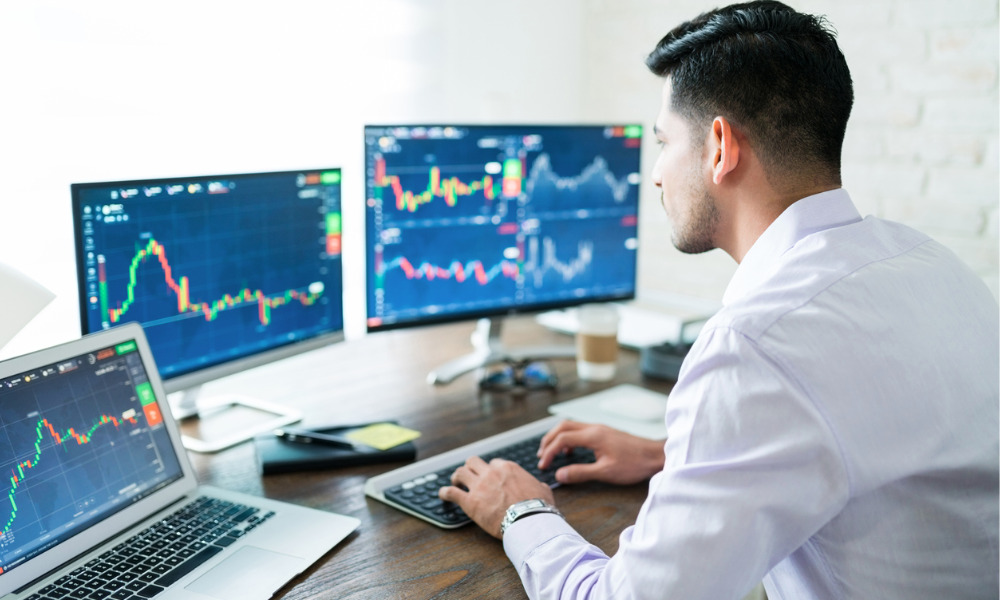Beware of companies with over-leveraged balance sheets or thin cash flow, he warns

Investors should consider more actively managed funds if they want to avoid any traps in dealing with traditional dividend ETFs that aren’t well-positioned for the next bull market phase, Michael Loukas, the CEO and Principal of TrueMark Investments told WP from San Francisco.
“Existing ETFs are typically backward-looking, so they tend to fall into dividend or yield traps,” he said. “One of their single metrics for assembling portfolios is yield. But you have to be careful that it’s not an over-leveraged balance sheet or thin free cash flow, which can pump up the fund to make it look more attractive, because a high dividend can be healthy or unhealthy.”
Loukas said TrueMark’s DIVZ equity income fund, averaging about 30 names, differs from passive indexes or ETFs by considering more metrics. “We look at value and yield, and do fundamental analysis on these names,” he said. “What we hope for is a portfolio that's capable of not just an attractive yield, but dividend growth and capital appreciation.”
This is a hot topic because those who are in passive ETFs concentrated in sectors that rising rates can hurt are looking for ways to protect themselves while still generating a good yield in a low-yield environment. It’s of particular concern as people near retirement or rates are slippery.
Read more: The demand for active ETFs is holding up even better than that for passive funds.
“When you're positioned correctly and have good fundamental metrics that you're pursuing, you can capture what a bull market has to offer and still get yield. You can defend yourself in a rising rate environment and still get yield,” he said.
“When you have a bull market, you don’t want to miss the opportunity to catch some of the capital appreciation,” he added. “Active management really puts DIVZ in a better position to have some real winners on the pure valuation side along with a pretty attractive yield.”
Loukas cautioned that ETFs that focus solely on yield can end up concentrated in certain sectors, like utilities, which act more like bonds or are inversely correlated to rates. When rates begin to creep up, as they’ve done recently, those sectors can experience price drops.
“So, it's all wrapped around this one sort of thread that we pull on, which is if you're solely looking at yield, it's going to lead you to all these other landmines that are not what investors bargained for, right when they're trying to buy for dividend,” he warned.
Investors need to beware of buying companies that aren’t fundamentally stable and growing – such as Morgan Stanley that doubled its year-over-year dividend simply because it was hoarding cash throughout the lockdown – and others whose balance sheets have eroded during this time.
It’s critical to dig into a company’s fundamentals and really understand what its business did and plans to do as it proceeds. He cited companies, such as Cisco, which are reliable dividend payers with a very healthy balance sheet, or Big Pharma companies, such as Bristol-Myers Squibb, which has a very healthy balance sheet and high cash flow and also pays attractive yields.
“Why wouldn't you want to own those and concentrate on those, as opposed to just chasing the yield and opening yourself up to all these other risks that are market related?” he asked.
“You can diversify into names like that, as opposed to the old way of buying for dividends, which is concentrated in utilities and in other bond-like companies,” he said. “I think they’re being very transparent about what a company has done in the past couple of years and what it has the potential to do in the next couple of years, and that’s important in assembling the right portfolio.”
The challenge moving forward is identifying all those companies that have robust business lines but also balance sheets that can outlast any corrections. He cited several companies in the DIVZ portfolio, including Nortonlifelock Inc., a cybersecurity company that is expected to continue to do well after the pandemic, big money centre banks, like JP Morgan Chase & Co., and Avangrid Inc., a leading sustainable energy company.
“If this market environment continues to shore itself up, there are some sectors that are poised to increase dividends, namely the money center financials and banks and Big Pharma,” he said. “It's another situation where you have very healthy balance sheets and very successful companies that dialled back on their spending throughout the pandemic. Now that we're coming out of it, and they have a better visibility on what the economic environment would look like moving forward, they have the ability to spend some of that free cash flow in the form of dividends.”



